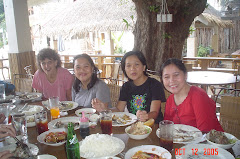This forms part of my report on "women's rights" subject. I intend to tackle how the LGBTs as sexual identities become politicized and was moved into collective actions by using Edelman's concepts of political opportunities, mobilizing structures and framing processes. Various social institutions have different takes on sexuality. The religious institution promotes "procreational ideology", that is sexuality can only done through marriage, with the goal of having children. Thus, it also exalts abstinence from sexual pleasures as virtuous. Now, the Church has been polarizing the presidentiables into "pro-RH bill" and "anti-RH bill". On the the other hand, with the people earning more than enough money, some of them engage in extramarital affairs and even in same-gender sex. Also, with it comes the commodification of goods, even of sexual images and gratification. Another institution, the family, teaches children how to become masculine and feminine. The concept of love, marriage and sex is also taught in this institution. But during the '70s, with the "flower power" revolution, sex was delinked from love and marriage. So, it becomes permissible; so as with same-gender sex.
Moreover, the medical institution also medicalize sexuality. Before 1973, it regards homosexuality as a an 'abnormality'. But after that, the APA delist homosexuality from the list of abnormal disorders. The law, on the other hand, seeks to control sexual behaviors by regarding it as 'illegal' (e.g. rape, exhibitionism, etc.). But all these institutions promote heterosexuality as the norm.
So, two critiques surfaced: compulsory heterosexuality and queer politics. Both seeks to debunk the primacy of hetersexuality. According to Rich, heterosexual preference is not a real choice because women were socialized to that. While according to Blasius, sexuality is more fluid. One can choose from a continuum of sexual choices. From this redefinition of sexualities, come the birthing of various lesbian groups, with the support of the women's movements. It started out as 'cliques' or clandestine groups. Then, in 1993, the lesbians declared a statement in the Mendiola March condemning discrimination against lesbians. Since then, lesbian issues were tackled in various conferences around the country and even in Asia.
At this point, the Left forces also recognized the lesbian and gay issues; thus, two ND groups were created: LesBond (lesbians fro national democracy) and Pro-GAY. In the second phase of the LGBT struggles, it become closer now to the LGBT groups. LAGABLAB, Lunduyan and LADLAD were born. The last one now attempts to participate in the electoral politics. But that was not an easy struggle. In 2007, the group was rejected due to lack of constituency. So, they organized all over the country. Now, they were rejected still, due to 'immoral doctrines". This
becomes part now of the re-framing process especially when CHR director De Lima branded the COMELEC action as 'patently discriminatory'. LADLAD won this time because the Supreme Court enabled them to run for this May 2010 elections as one of the party list group.
Emerging issues and concerns are a lot: conservatism, fundamentalism, etc. But the LGBT groups can still count on various rights as specified in various UN documents(CRC, CEDAW, UDHR, etc). Most of all, the LGBT movement can count on the dynamism of its own. Padayon!




